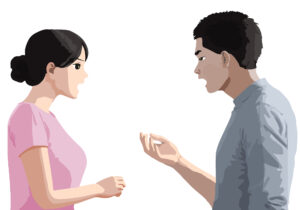Hello everyone. Today, I would like to share with you some surprising information about international marriages.
When Japanese people get married internationally, their children can disappear as if by magic. Of course, this does not mean that the children actually disappear. It just means that one parent disappears with the child.
Recently, the number of Japanese and non-Japanese couples continues to increase. It is very wonderful. However, problems occur when couples do not get along. Surprisingly, it is not uncommon for Japanese parents to move out on their own with their children.

In many countries, it is considered important for both parents to remain involved in raising their children after divorce, but in Japan, this idea is not yet mainstream. Japan has adopted a “sole custody system,” under which only one parent has custody (the right to raise children) after divorce, and as a result, the parent who does not get custody often loses access to his or her children. Furthermore, sometimes one parent moves out on their own with the child in order to gain custody. When this happens, the other parent will feel as if the child is suddenly gone. This system is not in line with international thinking, which puts the child’s happiness and development first. In many countries, it is considered important for both parents to be involved with their children, but in Japan this idea is not widespread and there is no legal support. It is as if Japanese law says “one parent is enough.
In many cases, especially in the case of international marriages, Japanese mothers who have been living abroad return to Japan with their children without telling them.
This situation is often met with a “Isn’t that strange? This situation has been voiced by people from all over the world. In countries where it is normal for parents to cooperate in raising their children even after divorce, some even call Japan a “child abduction state. It may seem as if Japan is a collector of children, but the courts are also troubled by this problem. When they receive international pressure to “return the children,” they are at a loss as to “how to deal with the situation…” The solution does not seem to be easy, as there is a huge gap between Japanese law and international rules. The government is working on this issue, but the road still seems to be long.
From Australia.
Catherine has not seen her children since 2019 after her Japanese husband took them from her in Japan. The divorce was finalized by the Japanese court and custody was given to her ex-husband. However, Catherine said: If this had happened in Australia, he would have lost custody. In Australia, parents are jointly responsible for the upbringing of their children after divorce. Removing a child without the consent of the other parent is punishable as child abduction. In Australia, joint parental responsibility and joint child-rearing are common, and it is standard practice for both parents to remain involved in the upbringing of their children after divorce. In Japan, on the other hand, such responsibility and the right to joint parent-child involvement are not recognized. Catherine said that her friends were surprised to hear that she could not see her children, even though she had not committed a crime.
This situation is as if Japan is wandering in the maze of international marriage issues, unable to find a way out. It is already too late for the foreign parents to “Give me back my child! but it is already too late. Japan is ridiculed as a “black hole” for parents whose children have been taken away. From an international perspective, this issue highlights the fact that Japan’s legal system and practices are very different from those of other countries. With the increase in international marriages, this problem is becoming increasingly apparent.
However, things are changing in Japan, albeit gradually.
In May 2024, the Civil Code will be amended to allow for partial joint custody, which will take effect within two years thereafter. With this new law, it is hoped that parents may be able to cooperate in raising their children after divorce. However, there are no rules in this law to stop people from taking children away without permission. Nor is there a law to punish parents who take their children away. Japan is slowly getting better, but there are still problems that need to be solved.
So, what will be the future of this problem? Will the day come when children can live happily regardless of the nationality of their parents?
Or will international marriages continue to be the stage for “hide-and-seek”?
I encourage everyone to think about the custody system in Japan.
This content is restricted to site members.
If you are an existing user, please log in.
New users may register below.
New User Registration

